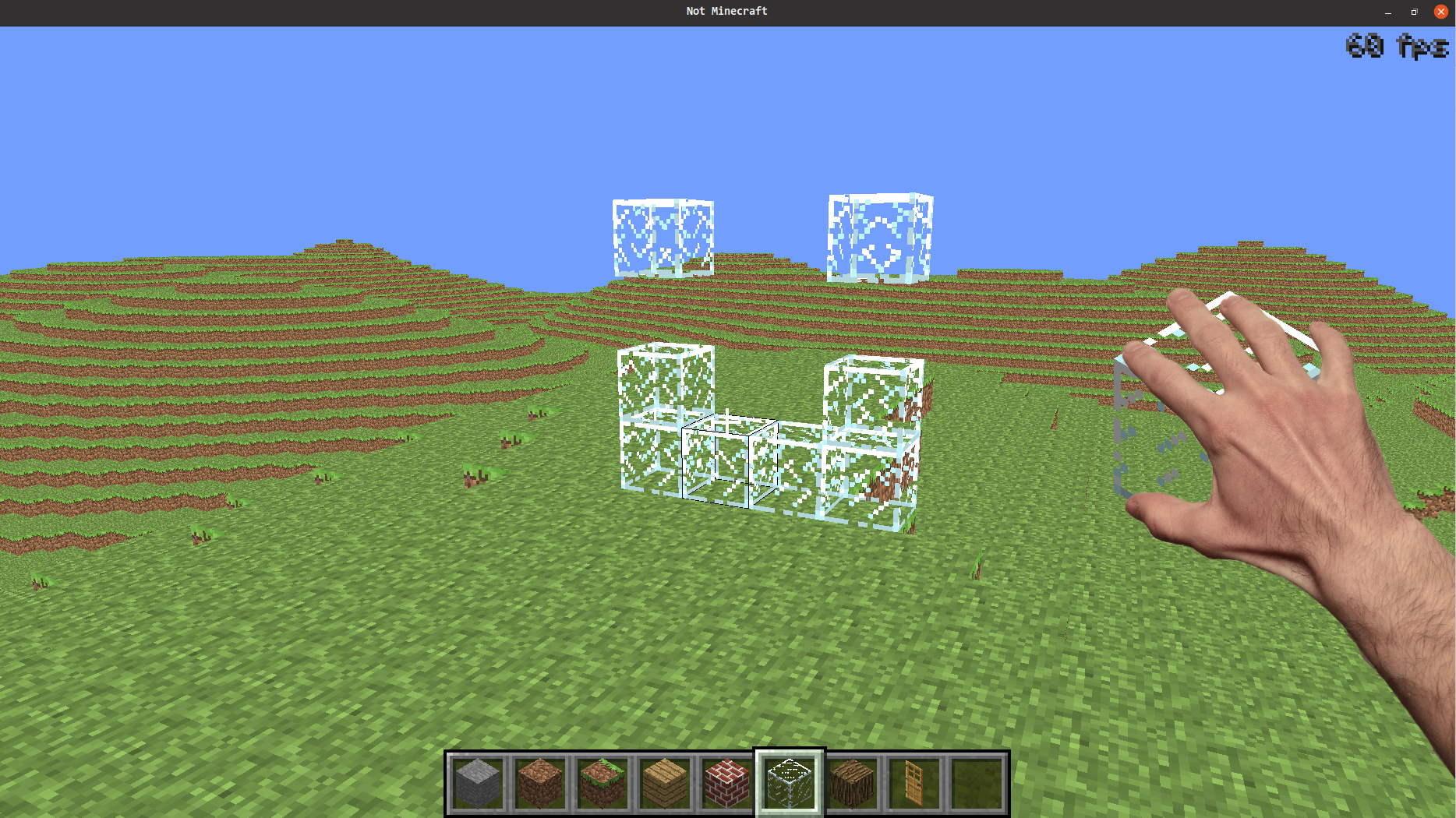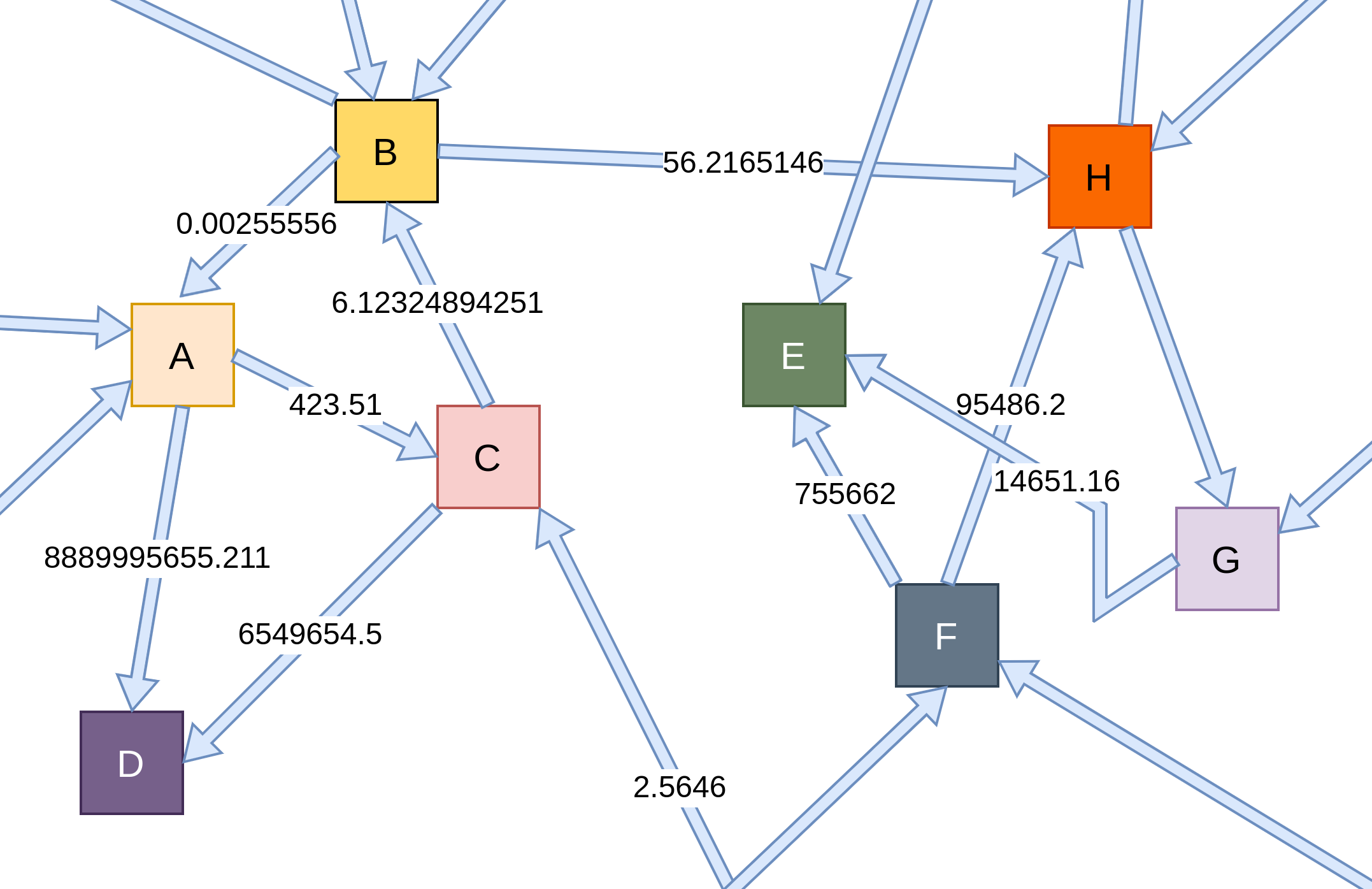Not Minecraft Beta 1.0.2 is a project to create a feature-complete open source reimplementation of the first version of Minecraft beta in Rust, complete with many optimizations and generalizations and very strong multiplayer engine that does several forms of client-side prediction.

The multiplayer protocol is currently built on top of web-sockets, although there are plans to introduce and take advantage of the distinct features of QUIC as an alternate transport in the future, as well as to introduce a trust-on-first-use cryptographic identity system, as well as to take advantage of peer-to-peer hole-punching to reduce client-to-client player action latency where possible. Eventually, I have ideas on how to support sharding the world between multiple servers.
The graphics system is built over WebGPU and supports both 3D and 2D rendering, TrueType fonts, and in-place-patchable meshes. There is also a GUI sizing and layout layer built on top of the graphics layer which uses Rust's type system to statically check that the cause/effect flow direction of layout constraints is consistent between directly nested components, and which is actually able to operate with almost no dynamic dispatch or heap allocation, but rather by fusing all GUI logic at compile-time to a monad-like monomorphized blob.
Repnet is a fundamentally different take on currency. Both dollar-style and bitcoin-style currencies see currency as tokens people own. For distributed systems theory reasons this means they both rely on the imposition of an objective view on economic ownership. This is a form of centralization, and produces problematic effects and centralized management. Repnet instead sees currency as relationships between people, like a graph of directed springs representing trust and promises, oscillating and breathing back and forth as economic activity occurs, through which automated chains of arbitrage can facilitate large-scale indirect reciprocity. This is more decentralized because it can more gracefully cope with partial disagreements, which is conducive to many nice properties.

Repnet-powered markets sound great and I think it's plausible, novel, and helpful. However, for now, I'm trying to gradually bootstrap this into existence by applying it to existing peer-to-peer systems, to let people more reliably form mutualistic relationships between their computers as an alternative to centralized corporate infrastructure.
My strategy is currently as follows:
- Develop a minimum viable set of repnet software components in the form of a prioritizing reverse-proxy. This would let you slap this software in front of existing peer-to-peer software, like IPFS, and participating computers would automagically start trading network-time with each other.
- Keep maximizing agency
- ???
- Jupiter converted into fully sentient nanobot swarm
Blog posts and more!
| 6.9k words | v0.3.1 | pub sep/28/2024 | |
| 1.8k words | v1.0.0 | pub feb/25/2022 | |
| (hub page) | rev dec/31/2022 | ||
| (hub page) |
| kahlo.phoenix@gmail.com | |
| Fediverse | https://hachyderm.io/@gretchenfrage |
|
|
https://gitlab.com/gretchenfrage |
|
|
https://github.com/gretchenfrage |